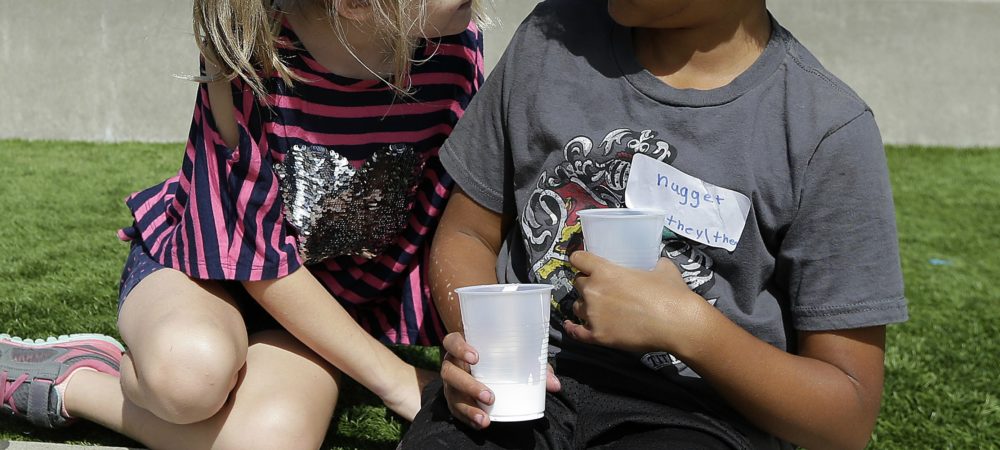Advertisement
Commentary
'They' Is Here To Stay. Get Over It
Resume
A few months ago, my 12-year-old, Elm, announced that they wanted to use “they/them” pronouns, instead of “she/her.” Elm didn’t want to change their biological sex, they said, but felt that their gender was nonbinary, and that “she” no longer felt good or right.
This wasn’t entirely out of left field, nor was it an impulse decision. Elm has long bucked gender norms, wearing their hair short and dressing in what they call “so-called boys’ clothes.” Over the past two years, they have been actively exploring and questioning notions of gender and sexuality and discussing their thoughts with me and my husband.
We told Elm that we would absolutely support their choice and respect their wishes. Elm’s sister was fully on board too and is the first to correct me now when I slip and use “she” instead of “they.” (Which I still do sometimes, much to my own frustration.)
... as accepting as most people are, many still feel the need to add, with varying degrees of consternation: “I just have trouble with the fact that ‘they’ is plural.”
As we’ve shared news of Elm’s decision with our friends and family, they have been almost universally supportive — something for which we’re incredibly grateful. Even people who still haven’t quite wrapped their heads around the notion of nonbinary gender, have been accepting of Elm’s choice. “I don’t understand it,” one acquaintance confessed. “But I’ll respect it.”
And yet, as accepting as most people are, many still feel the need to add, with varying degrees of consternation: “I just have trouble with the fact that ‘they’ is plural.”

Now, I’m a writer, and I get way more worked up about grammar issues than is probably healthy. I seethe when people say "I" when it's supposed to be "me," (or vice versa). I nearly break out in hives when people write "everyday" when it should be "every day." When I see apostrophes used to create plurals, I have violent thoughts.
But using “they” to refer to a single person? Meh. Doesn’t bother me. In fact, for years in my work as a copywriter, I've pushed my clients to let me use the singular "they" instead of the incredibly clunky "he or she." (As for using “he” as the default? More of those violent thoughts.)
The fact is, most Americans already use the singular “they” when talking about a hypothetical person, or in situations where a person’s gender is unknown. A growing number of editors, publishers, style guides and media outlets are increasingly accepting of the singular “they” as a generic singular pronoun, including the Associated Press, the MLA, the Washington Post and NPR.
It’s time for the rest of us to stop kvetching, tell our inner schoolmarm to take a hike, do the linguistic work, and embrace the evolution of “they.”
That being said, I do understand why people still balk at the notion of referring to individual people as “they” on the grounds of grammar and clarity. Sure, using it can be a pain. There are times when I have to perform all kinds of syntactical acrobatics to make it clear that I’m talking about Elm, singular, as opposed to Elm and their friends or Elm and their sister. I have to use Elm's name a lot more. (See?) It would certainly be a lot easier if English had a singular, gender-neutral pronoun. But new ones like “xe” or “ae” and “hir” haven’t gained widespread adoption, probably because it’s easier for people to become fluent in new meanings for existing words (“web,” anyone?) than to incorporate completely new words — particularly ones used as frequently as pronouns. “They” is the best our language has got.
More to the point, it’s what my child, and countless other people who feel constricted and excluded by the inflexibility of “he” and “she,” want.
It’s time for the rest of us to stop kvetching, tell our inner schoolmarm to take a hike, do the linguistic work, and embrace the evolution of “they.”
This segment aired on August 13, 2019.
